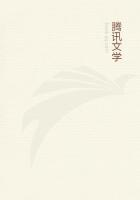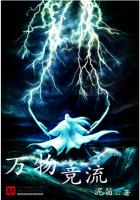This was on the first of those three interviews which he has preserved for us with so much dramatic vigour in the picturesque pages of his history. After he had avowed the authorship in his usual haughty style, Mary asked: "You think, then, that I have no just authority?" The question was evaded. "Please your Majesty," he answered, "that learned men in all ages have had their judgments free, and most commonly disagreeing from the common judgment of the world; such also have they published by pen and tongue; and yet notwithstanding they themselves have lived in the common society with others, and have borne patiently with the errors and imperfections which they could not amend." Thus did "Plato the philosopher:" thus will do John Knox. "I have communicated my judgment to the world: if the realm finds no inconvenience from the regiment of a woman, that which they approve, shall I not further disallow than within my own breast; but shall be as well content to live under your Grace, as Paul was to live under Nero. And my hope is, that so long as ye defile not your hands with the blood of the saints of God, neither I nor my book shall hurt either you or your authority." All this is admirable in wisdom and moderation, and, except that he might have hit upon a comparison less offensive than that with Paul and Nero, hardly to be bettered. Having said thus much, he feels he needs say no more; and so, when he is further pressed, he closes that part of the discussion with an astonishing sally.
If he has been content to let this matter sleep, he would recommend her Grace to follow his example with thankfulness of heart; it is grimly to be understood which of them has most to fear if the question should be reawakened. So the talk wandered to other subjects. Only, when the Queen was summoned at last to dinner ("for it was afternoon") Knox made his salutation in this form of words: "I pray God, Madam, that you may be as much blessed within the Commonwealth of Scotland, if it be the pleasure of God, as ever Deborah was in the Commonwealth of Israel." (1) Deborah again.
(1) Knox's Works, ii. 278-280.
But he was not yet done with the echoes of his own "First Blast." In 1571, when he was already near his end, the old controversy was taken up in one of a series of anonymous libels against the Reformer affixed, Sunday after Sunday, to the church door. The dilemma was fairly enough stated.
Either his doctrine is false, in which case he is a "false doctor" and seditious; or, if it be true, why does he "avow and approve the contrare, I mean that regiment in the Queen of England's person; which he avoweth and approveth, not only praying for the maintenance of her estate, but also procuring her aid and support against his own native country?" Knox answered the libel, as his wont was, next Sunday, from the pulpit. He justified the "First Blast" with all the old arrogance; there is no drawing back there. The regiment of women is repugnant to nature, contumely to God, and a subversion of good order, as before. When he prays for the maintenance of Elizabeth's estate, he is only following the example of those prophets of God who warned and comforted the wicked kings of Israel; or of Jeremiah, who bade the Jews pray for the prosperity of Nebuchadnezzar. As for the Queen's aid, there is no harm in that: QUIA (these are his own words) QUIA OMNIA MUNDA MUNDIS: because to the pure all things are pure. One thing, in conclusion, he "may not pretermit" to give the lie in the throat to his accuser, where he charges him with seeking support against his native country. "What I have been to my country," said the old Reformer, "What I have been to my country, albeit this unthankful age will not know, yet the ages to come will be compelled to bear witness to the truth. And thus I cease, requiring of all men that have anything to oppone against me, that he may (they may) do it so plainly, as that I may make myself and all my doings manifest to the world. For to me it seemeth a thing unreasonable, that, in this my decrepit age, I shall be compelled to fight against shadows, and howlets that dare not abide the light." (1)
(1) Calderwood's HISTORY OF THE KIRK OF Scotland, edition of the Wodrow Society, iii. 51-54.
Now, in this, which may be called his LAST BLAST, there is as sharp speaking as any in the "First Blast" itself. He is of the same opinion to the end, you see, although he has been obliged to cloak and garble that opinion for political ends.















